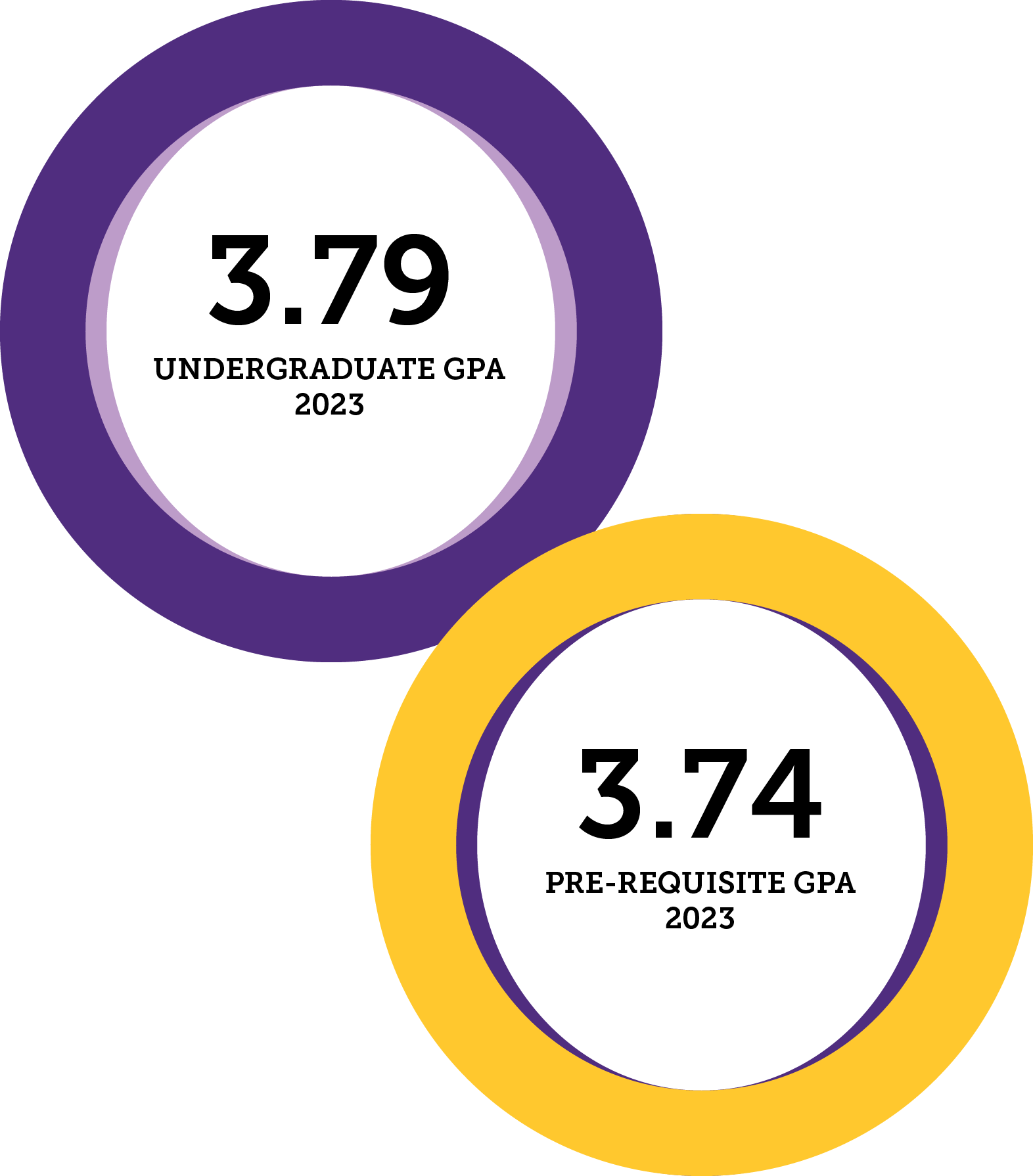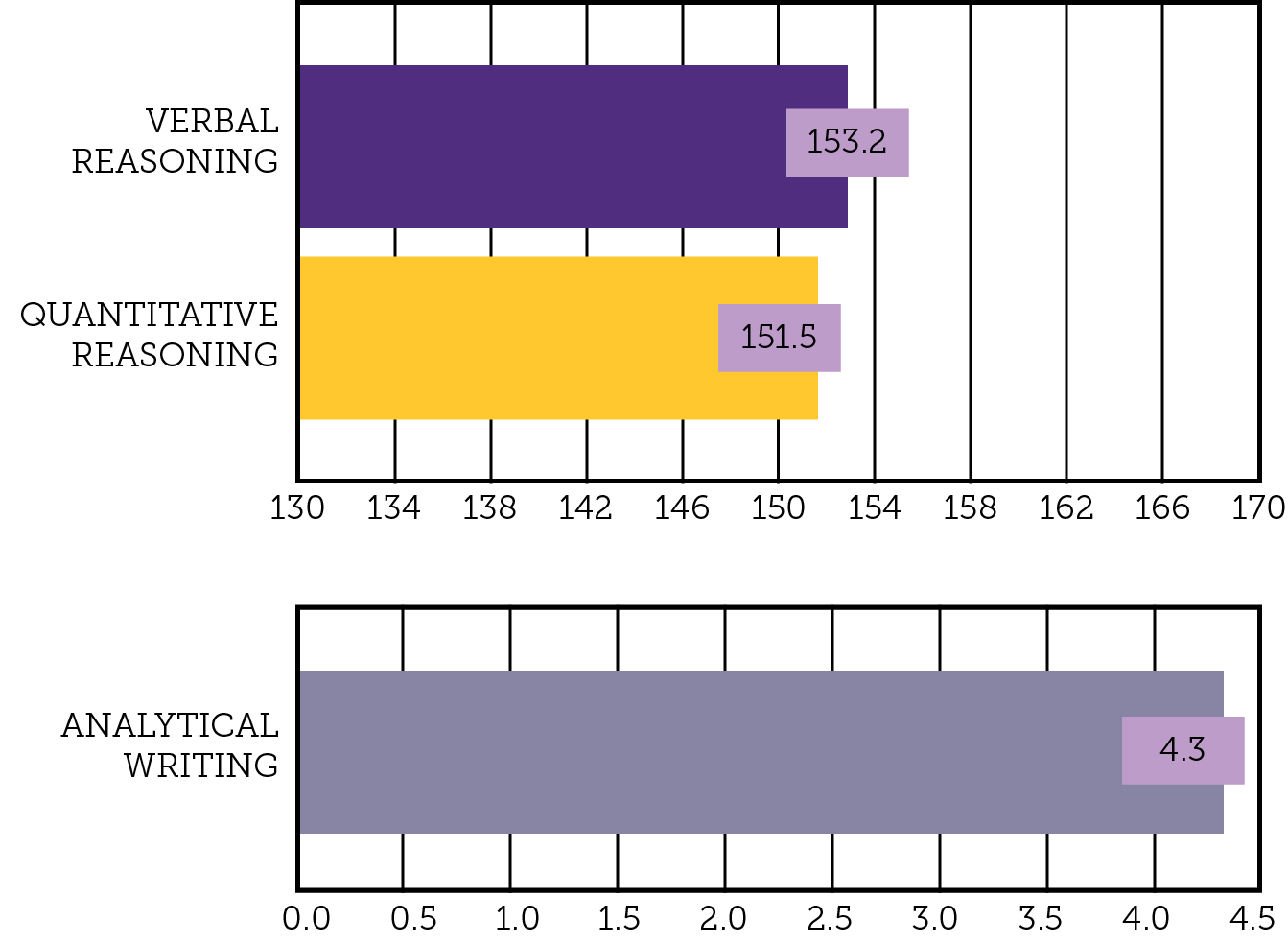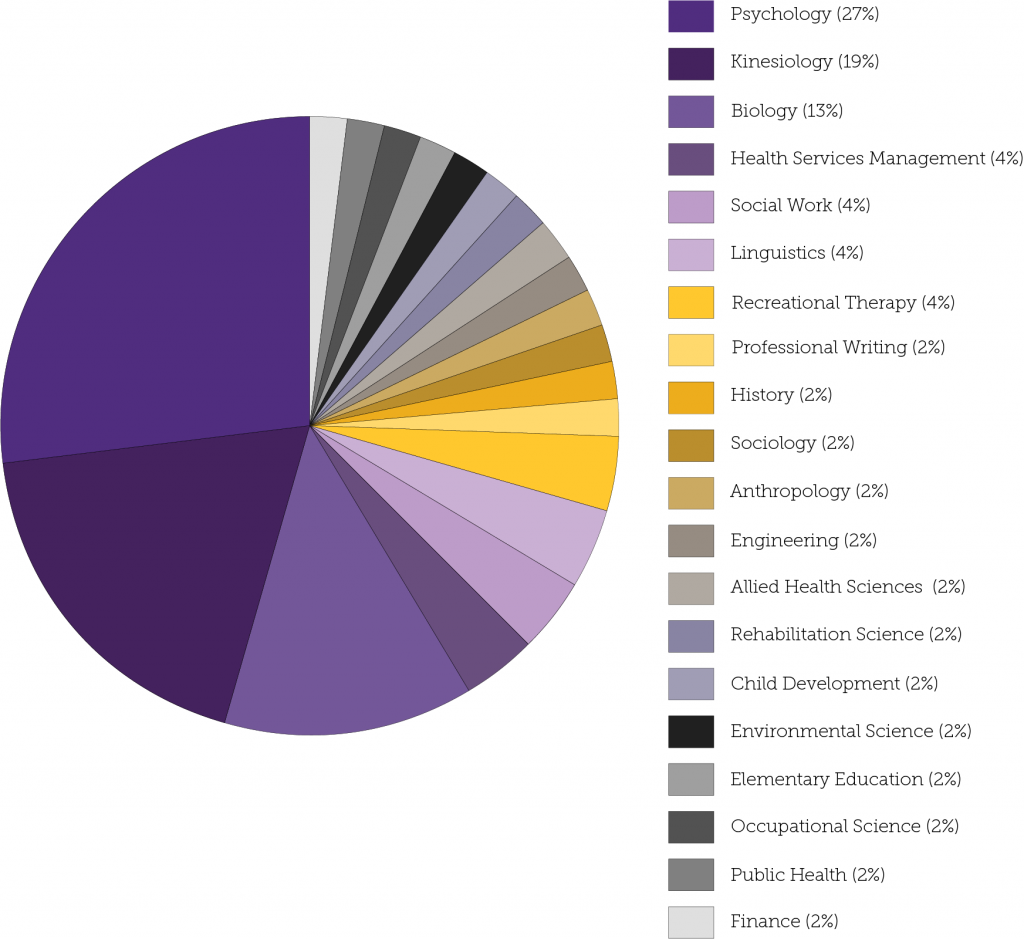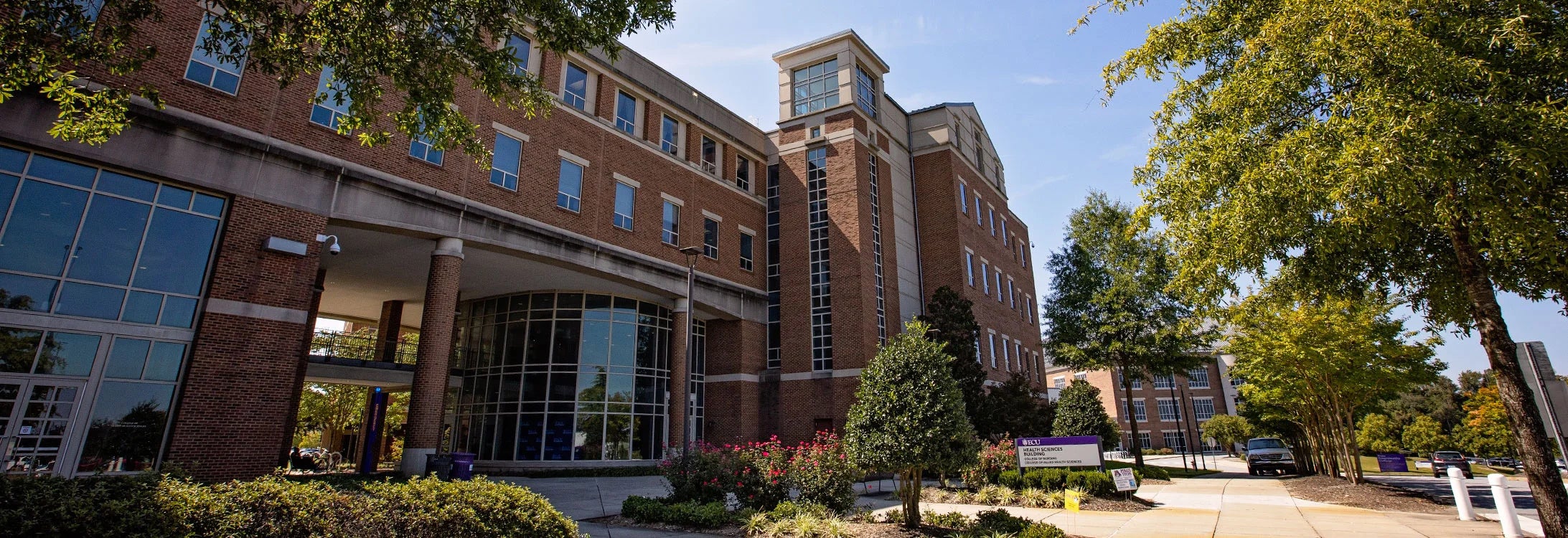Admissions for the Master of Science in Occupational Therapy Program
-2025-2026 OTCAS and ECU Graduate School applications will open July 18 (
-Please use the same personal email address for both OTCAS and ECU Graduate School applications.
Students interested in the Master of Science in Occupational Therapy (MSOT) program should review this website about the MSOT program and all of the pages related to admissions prior to emailing questions. A wealth of information is located here for your convenience.
Information Sessions
If you are unable to attend one of the informational sessions, you may schedule an individual appointment.
Application Requirements
In order to be eligible for acceptance into East Carolina University (ECU)’s MSOT program, the following requirements must be met.
- A baccalaureate degree from an institution accredited by a regional association or evidence that a baccalaureate degree will be conferred before the start of the program in the fall. We welcome a baccalaureate degree from any discipline, as long as the prerequisite courses are completed as required.
- A minimum cumulative GPA of 3.0 on a 4.0 scale from undergraduate work is required, but a 3.5 or above will be competitive for admission consideration.
- Satisfactory scores on the verbal reasoning, quantitative reasoning, and analytical writing of the Graduate Record Examination (GRE) scores (code 1989). To be considered a competitive applicant, it is recommended that GRE scores should be at least the 50th percentile on most sections of the GRE.
- Non-native speakers must submit an acceptable score on one of the language tests approved by the Graduate School or evidence of at least 1 year of college/university study in the United States.
- Applicants may apply before completing all prerequisites; however, at least 4 of the Anatomy/Physiology credits must be completed prior to the application deadline. It is also recommended 5 of the 8 required prerequisite courses (Anatomy/Physiology with Lab counted as 1 course) be completed by the application deadline.
- Prerequisites may be taken at any university or college. ALL prerequisites must be completed before you begin the program.
- Students must receive B- (2.7) or higher to be considered passing these prerequisite credits. Competitive students submit applications with prerequisite grades higher than the minimum in most of the courses.
- Beginning NEXT 2026-2027 Admissions (NOT the current cycle), 5 of 8 required prerequisite courses (4 credits of Anatomy & Physiology with Lab counted as 1 course) MUST be completed by the application deadline. For 2025-2026 Admissions (current cycle), at least 4 of the Anatomy/Physiology credits must be completed prior to the application deadline.
- Due to the circumstances facing universities in the recent semesters as a result of the COVID-19 pandemic, pass/fail grading options are being offered at many schools. Applicants to the MSOT program at ECU should opt for letter grading of all prerequisite courses whenever it is available. A grade of B- or better will continue to be required for prerequisite courses.
Course Equivalencies
This chart is provided for your convenience. It lists equivalencies between ECU courses and popular universities from which a student may apply. Please note that universities change their course offerings on a regular basis, and the courses included here may or may not still be accurate. It is your responsibility to check with your institution to see which equivalent courses are available to you.
The list provided here is not exhaustive. We accept courses taken at community colleges and universities as long as they are accredited. If you cannot take a course at your institution, you may need to seek the equivalent offering at a local community college or explore other options. We accept online prerequisites for all courses but strongly recommend taking anatomy and physiology coursework face-to-face.
All prerequisite courses must be completed with a B- or above prior to beginning the MSOT program. Four credits of anatomy and physiology are required at time of application.
| Prerequisites | Semester Hours | ECU | UNC-CH | NC State | Appalachian State | UNC-W |
|---|---|---|---|---|---|---|
| *Human Anatomy with Lab | 4 | BIOL 2140 and 2141 | BIOL 252 or EXSS 175, and BIOL 252L | BIO 240 | ES 2040 | BIO 240 or EXS 216 |
| *Human Physiology with Lab | 4 | BIOL 2150 and 2151 | BIOL 253 or EXSS 276, and BIOL 253L | BIO 245 | ES 2050 | BIO 241 or EXS 217 |
| *Statistics – must cover both descriptive and inferential statistics This course cannot be fulfilled with AP credit. | 3 | MATH 2228, 2283, BIOS 1500 or PSYC 2101 | PSYC 210 or STOR 151 or STOR 155 | ST 311 | STT 1810, or 2810 | PSY 225, STT 210, or 215 |
| Developmental Psychology/Lifespan Development – must cover birth-to-death (cannot be a motor development course) | 3 | PSYC 3206 | a. ANTH 318 or PSYC 250 and 502 | PSY 376 | PSY 2210 | PSY 223 |
| *Abnormal Psychology | 3 | PSYC 3375 | PSYC 245 | PSY 470 | PSY 2212 | PSY 247 |
| Reasoning course such as logic, ethics, or critical thinking (often comes from a philosophy department) | 3 | PHIL 1500, 1175, 1180, or 2275 | PHIL 101, 105, 134, 140, 160, 163, 165, or 170 | PHI 205, 210, 221, 250, 325, REL 200, or 210 | PHL 1000, 2000, or HCM 4930 | PAR 101, 103, 110, 115, or 215 |
| Introduction to Sociology OR Introduction to Anthropology OR Introduction to Cultural Anthropology | 3 | SOCI 2110, ANTH 1000, or ANTH 2200 | SOCI 101, 111, 112, ANTH 101, or 102 | ANT 251, 252, SOC 202, or 203 | ANT 1415, 2215, or SOC 1000 | ANT 105, 206, or SOC 105 |
| Medical Terminology or demonstrated proficiency in medical terminology by passing an exam with ECU OT | 1-3 | HIMA 3000 | CLAS 126 | CLA 115 | NUT 4552 or 4553 | ATR 470 |
| TOTAL | 24-26 |
Admissions Policy
Admission to the MSOT program is based on the application components listed under “How Do I Apply to the MSOT Program” below. No courses can be transferred into our MSOT program from outside institutions, and no credit is given for work experience. ECU MSOT does not accept, as part of the program requirements, advanced placement credits, undergraduate credits, or experiential learning outside of the occupational therapy program.
ECU MSOT admissions process aligns with the institutional mission and vision and reflects the ECU Graduate School Non-Discrimination Policy noted here: https://gradschool.ecu.edu/admissions/. All students are eligible to apply, but only complete applications will be reviewed and considered. There are no restrictions on the number of students in our program based on residency or any other protected class or cultural classification.
How Do I Apply to the MSOT Program?
Applications must be submitted to OTCAS as well as the ECU Graduate School. The application checklist describes four application steps: (1) Prepare, (2) Complete Virtual Interview, (3) Complete OTCAS Application and create ECU Graduate School application account, and (4) Apply to ECU Graduate School.
Applications to OTCAS must include all of the following items, submitted through OTCAS (https://otcas.liaisoncas.com/):
- Graduate Record Examination (GRE) Scores (code 1989): Scores of verbal reasoning, quantitative reasoning, and analytical writing
- Transcripts: Applicants must submit the transcriptive from ALL attended colleges and universities (this includes college courses taken in high school).
- Letters of Recommendation: Three letters of recommendation are required. One letter should address the applicant’s academic and/or work performance. The other letter should address character/personality traits such as ethics, teamwork, initiative, communication, critical thinking, reliability, and/or interpersonal skills.
- Prerequisite Catalog Course Descriptions: Applicants will compile a list of all prerequisite courses taken, number of semester hours, and term/year taken.
- Essay: Applicants will be asked to respond in writing to an essay prompt within the application. This is in addition to the personal statement required by OTCAS.
- Recorded Video Interview: This interview will require access to a device with an internet connection and a camera/video recording feature with microphone.
- Resume: Maximum of 2-page resume. A template will not be provided. Please follow the provided outline below for the important experiences to be highlighted.
- Education
- Work and/or volunteer experience, including dates and primary responsibilities in positions
- Significant shadowing experiences in health care and/or occupational therapy, including dates and hours, if appropriate
- Awards and/or honors
- Leadership activities and/or organization memberships
- Research experience with descriptions on experiences, interests, readiness (e.g., use of spreadsheets, SPSS/SAS, use of statistics)
Application Timeline
Entry-Level MSOT Application Due October 15, 2025
July – Students may begin submitting applications to OTCAS and ECU Graduate School.
October 15 – Deadline for complete applications of BOTH OTCAS and ECU Graduate School. All GRE scores, transcripts, and letters of recommendation must also be received by this date. Any application that is incomplete will not be reviewed.
December – Two different decisions will go out:
- Students who will be invited to on-campus interview will be notified by email.
- Students who have been eliminated from further review will be notified by email.
Mid-December to Mid-January – On-campus interview will occur for those invited.
February – Notifications will be sent by email regarding acceptance, waitlist, or denial.
All students accepting offers will be required to pay a $500 deposit within 4 to 7 days of notification to secure a position in the occupational therapy program.
Frequently Asked Questions for Admissions
What are the differences between the entry-level Master of Science in Occupational Therapy (MSOT) and entry-level Doctor of Occupational Therapy (OTD) programs?
All students are initially accepted into the MSOT program, with the program goal of developing exceptional occupational therapists, primarily in the clinical role.
Didactic and experiential coursework in the 24-month MSOT program is focused on gaining knowledge and demonstrating proficiency in clinical skills across the lifespan and across types of conditions. All students are engaged in evidence-based scholarship, and skills in clinical reasoning and professionalism will be facilitated and demonstrated through a variety of instructional methods.
MSOT students who pursue the OTD will build on the skills demonstrated during the primary phase of the program, as they engage in an additional year of education. In addition to excellence in clinical skills, OTD students will advance their scholarly outcomes through additional learning opportunities in research, leadership, and advocacy skills through coursework and the capstone experience. The four primary areas of the community-focused capstone experience are clinical practice, research, education, and/or program development. The OTD experiences will include consideration of appropriate community-based involvement.
Where do I find the information on the application processes that are required?
For the OTCAS, go to the OTCAS website. For the East Carolina University (ECU) Graduate School application, go to the Graduate School website. You can find application information through the “Apply” button under the “Admissions” tab.
How many students are accepted into the programs?
Currently, the Department of Occupational Therapy is accepting up to 26 MSOT students per academic year.
What should be in the letters of recommendation submitted through the MSOT application?
Three letters of recommendation are required. Please see the “How Do I Apply” page for specific details as to what should be addressed in the letters. It is typical that letters are written by former professors, undergraduate advisors, employers, or occupational therapists.
Are volunteer or shadowing hours required?
Volunteer or shadowing hours are not required. However, the ECU Occupational Therapy programs strongly encourage volunteer experience to help demonstrate commitment to the community and leadership skills. In addition, shadowing is important because it will help you understand if this is a career that is suited to your personality, knowledge, and abilities. Volunteering can be done with any organization or group, but shadowing with occupational therapists will assist you in understanding the various roles of occupational therapists, the types of settings that employ occupational therapists, and many diagnoses that require occupational therapy services. This information can be included on your resume.
Do you admit students before the application deadline?
We do not do rolling or early admissions. All applicants are reviewed together after the application deadline.
What happens after the Occupational Therapy Admissions Committee receives my application?
Please see Application Timeline for an approximate breakdown of the application timeline.
Is the essay important for my MSOT application?
The essays are one measure of the MSOT application and give the applicant an opportunity to highlight their special abilities, skills, talents, and experiences. The answers should reflect genuine impressions about you as an individual and future professional. This is a very important component of the application and should be taken seriously by the applicant.
Are there quotas in your programs for in-state students or out-of-state students?
No. All qualified, interested applicants are considered for admission, regardless of the state of residence.
What type of GPA is required for admission?
The occupational therapy programs requires a 3.0 minimum cumulative GPA on a 4.0 scale. Please see Application Requirements for more information or review the Admitted Student Profile for the average GPA of the incoming class.
What GRE scores are required?
The Admissions Committee reviews the GRE scores of verbal reasoning, quantitative reasoning, and analytical writing. Please see Application Requirements for recommended scores or review the Admitted Student Profile for the average scores of the incoming class.
What type of degree is required for the entry-level master’s program?
All applicants must have a baccalaureate degree from a regionally accredited four-year institution. ANY undergraduate degree is acceptable. Please see the Admitted Student Profile for a display of degrees from MSOT students in the program.
Do the prerequisite courses have to be completed prior to starting the MSOT program?
Yes, ABSOLUTELY all prerequisite courses must be completed with, at minimum, a B- (2.7) prior to starting the program. The exception is the medical terminology course requirement, which can be completed by passing an exam, but the exam must be completed before the start of the first semester with a passing grade. You may apply to the program while completing the prerequisites, but at least 4 of the anatomy/physiology prerequisites must be completed by the application deadline. It is also recommended that 15 of the 25 credits are completed before the application deadline.
What if I think a course I have taken meets one of your MSOT prerequisites, but I am not sure?
Please see Application Requirements for a chart of prerequisite courses from common institutions. Email the course description and/or syllabus to the Department of Occupational Therapy for advice at otadmissions@ecu.edu.
Can I work and go to school at the same time?
The curriculum is very demanding and requires a student to devote a great deal of time to completing course assignments. It is not recommended that students be employed outside of the university while enrolled in the program. External work can place you in a state of conflict with classmates when completing group work, which is a large part of many courses. Graduate assistantship positions are available throughout the university and within the department, and they are designed for students who need to earn additional funds. At the end of the curriculum, students will be working full time (40+ hrs) on a fieldwork assignment for 6 months and will find it very difficult to maintain employment. We encourage applicants to plan accordingly.
How long are the full-time programs?
The entry-level MSOT program is 24 months, including summer. The last 6 months of the 24 months are spent in the field completing Fieldwork II. The entry-level OTD program is 34 months, including summer.
Do you have any scholarships available? How do I apply for these?
Information on scholarships is available through the ECUAWard Portal and available for students currently enrolled in the program.
Can I transfer into your program from another university?
At this time, ECU MSOT program does NOT accept credits from OT students transferring from another school’s OT program. These students are encouraged to apply to ECU entry-level MSOT program with the post-baccalaureate applicants.
Does the program offer specialization in any areas of practice?
The accrediting body ACOTE has standards that require an entry-level program prepare students as a generalist. Our occupational therapy programs are designed to prepare graduates for practice in all settings. Occupational therapists should anticipate working with a variety of individuals of all ages and should be competent in all types of practice. The programs focus on teaching clinical reasoning skills and evidence-based practice a therapist can use when approaching novel situations. Through the selected research projects, students can enhance their knowledge and experience in a particular area of practice.
What are the types of fieldwork required?
There is a 1 week supervised fieldwork experience, 40 hours, during each of first Spring and Summer Semesters. Once all academic course work has been successfully completed, MSOT students will complete two separate full-time supervised 12 week internships in a variety of settings and during the last Spring and Summer semesters. Once all academic didactic course work has been successfully completed, OTD students will complete two separate full-time supervised 12 week internships in a variety of settings and during the last Summer and Fall semesters.
Do I have to have an area of research interest?
Research is required for completion of the program and is considered an integral part of a good graduate curriculum. However, a beginning graduate student may not have ideas for research that they would like to pursue. The faculty members have developed a process to share their interests, to encourage students to explore interest areas, and to learn the research process in progressive steps. All students will have completed a project in which they have an expressed interest upon graduation. Past projects can be viewed on the Masters Projects website.
Where will I live?
ECU does not have on-campus graduate housing. The Health Science Campus (where the occupational therapy programs and classes are housed) is separate from the Main Campus. There are several affordable apartment complexes in very close proximity to our building. Most of these apartment complexes only rent to graduate students and professionals. It is encouraged that students live in close proximity to campus for ease in meeting with peers for group projects and class community opportunities; however, some students do choose to commute on a daily basis.
What is the cost of the program?
Please see Estimating Program Cost.
Admitted Student Profile
| Pre-Requisite GPA | 3.74 |
| Undergraduate GPA | 3.79 |

| Verbal Reasoning | 153.2 |
| Quantitative Reasoning | 151.5 |
| Analytical Writing | 4.3 |

| Psychology | 27% |
| Kinesiology | 19% |
| Health Services Management | 4% |
| Social Work | 4% |
| Linguistics | 4% |
| Recreational Therapy | 4% |
| Professional Writing | 2% |
| History | 2% |
| Sociology | 2% |
| Anthropology | 2% |
| Engineering | 2% |
| Allied Health Sciences | 2% |
| Rehabilitation Science | 2% |
| Child Development | 2% |
| Environmental Science | 2% |
| Elementary Education | 2% |
| Occupational Science | 2% |
| Public Health | 2% |
| Finance | 2% |

